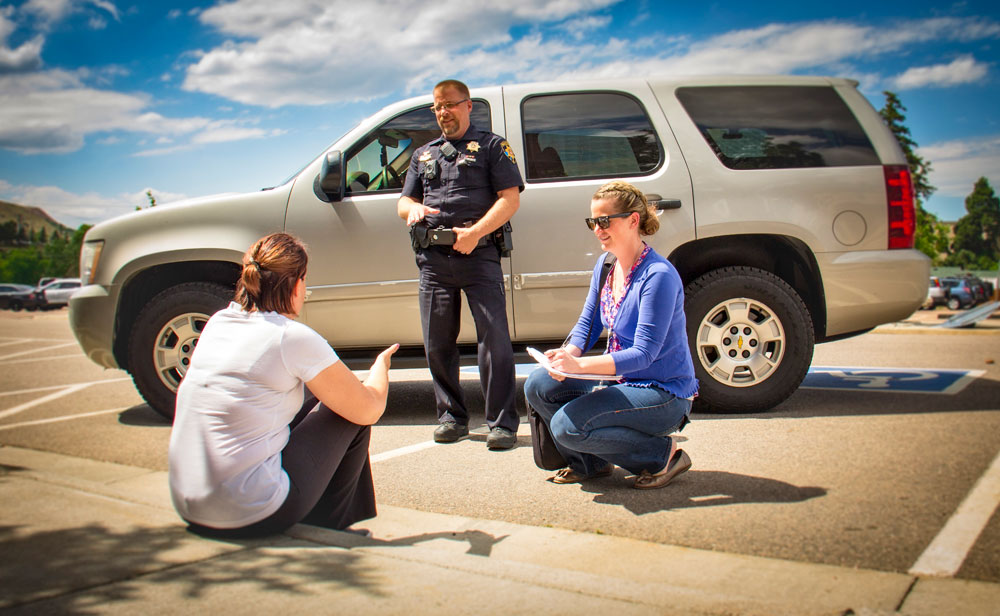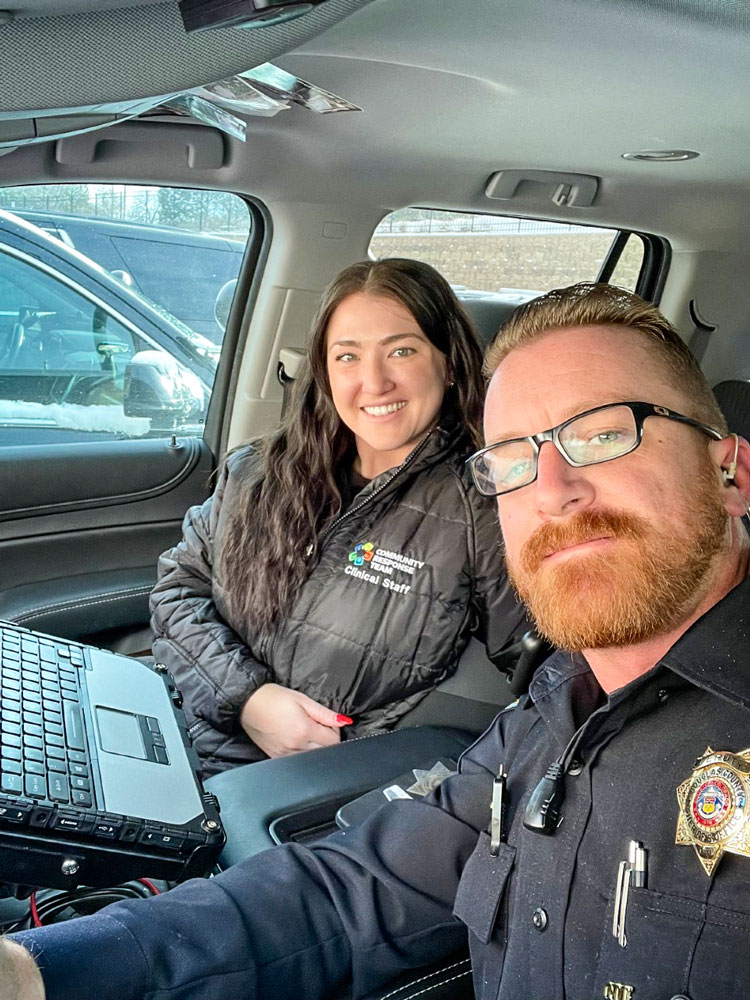Breaking Blue week two: Patrol and Community Response Teams

DCSO’s CRT on patrol. The CRT is conducting a mental health call and welfare check in the community with much needed resources for teens.
Continuing our series on the Douglas County Sheriff’s Office (DCSO) Citizens Academy, we dive deep into the Patrol Division (PD) and Community Response Teams (CRT).
Our class, led by PD Lieutenant Alan Stanton, provided an overview of the division and revealed that Douglas County encompasses 844 acres, with 12 patrol beat districts comprised of 138 patrol officers. Some jurisdictions like Castle Rock, Lone Tree and Parker have their own police departments, while others like the City of Castle Pines contract for police services through the DCSO.
In 2021, the DCSO received more than 114,576 calls from residents of Castle Pines, Castle Rock and Larkspur. Frequentcalls for service include theft, financial crime, vandalism, assault and auto trespass. I was surprised to learn that DCSO has increased the number of Flock Safety cameras installed in residential communities, tracking license plates of stolen vehicles coming and going to solve and even prevent crimes.
Calls to law enforcement related to mental health are on the rise nationwide, and in 2019, DCSO established the CRT to address emotional, mental health and substance abuse incidents. A CRT includes a law enforcement officer, a mental health clinician and a case manager who is assigned to the team in order to follow up with each case.
When a 911 call comes in and it is determined by a deputy that additional resources (mental health, etc) may be required for an individual, a CRT is called in for support. If the individual is deemed able to stay where they are, a safety plan is made with CRT case management. The deputy provides security on the scene and works to build rapport with the person being aided and the family.
According to CRT Deputy Zachary Zepeski, the goals of CRT are primarily focused on “providing help, preventing hospitalization and avoiding jail.” Zepeski passionately shared that his involvement in the CRT unit has been the “most rewarding role” in his law enforcement career.
Currently, CRTs work Monday through Friday during daytime hours, as the majority of the calls requiring a CRT are for teenagers.

Deputy Zachary Zepeski with a certified clinician ready to respond to a CRT incident.
Two youth CRTs have been established to more specifically address teen issues such as suicide prevention, identity and gender crises, welfare checks, mental health calls and non-criminal substance abuse calls. The youth CRT collaborates with the teen, the parents and the school to provide ongoing care for those in crisis and provides additional resources as needed.
In fact, one of the participants in the program was an actual caller who reached out to CRT for assistance for a family member during an active suicide attempt. Moved by the efforts and results of CRT, she now volunteers as a victims assistance advocate for DCSO.
Join us again next month as we continue our Breaking Blue series and we delve into the Bomb Squad and Investigations Unit.
By ViVi Somphon, photos courtesy of DCSO